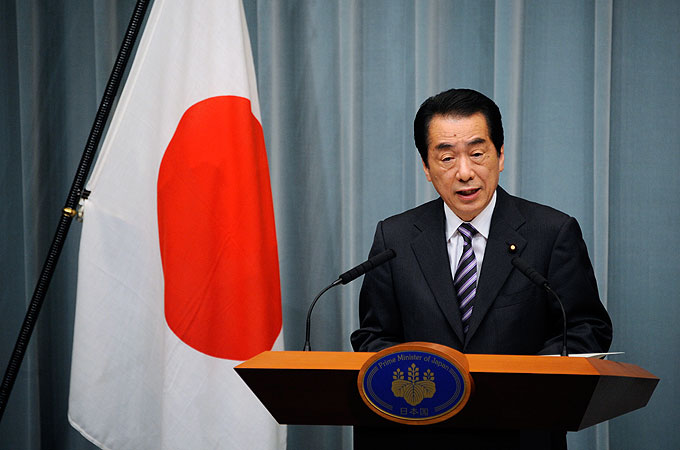Aide to Japan PM quits over radiation limits
A top nuclear adviser says government’s radiation limit is too high, and it takes ad-hoc measures to control crisis.

 |
| The Japanese prime minister has been criticised for mishandling the nuclear crisis after the twin disaster [EPA] |
A senior nuclear adviser to Naoto Kan, the Japanese prime minister, has submitted his resignation, alleging the government had ignored his advice on radiation limits and failed to follow the law.
Toshiso Kosako, a Tokyo University professor, who was named last month as an aide to Kan, said the government had only taken ad-hoc measures to contain the crisis at the crippled Fukushima nuclear power plant.
Keep reading
list of 4 itemsTurtles swimming to extinction in Malaysia as male hatchlings feel heat
Could shipping containers be the answer to Ghana’s housing crisis?
Thousands protest against over-tourism in Spain’s Canary Islands
In a tearful press conference, he said the government and its commissions had taken “flexible approaches” to existing laws and regulations, and ignored his advice after he was named an adviser on March 16.
“I cannot help but to think (the prime minister’s office and other agencies) are only taking stopgap measures… and delaying the end” of the nuclear crisis, he told reporters.
Al Jazeera’s correspondent, Divya Gopalan, reporting from Tokyo, said the expert criticised the government’s handling of the crisis and said their action was knee-jerk.
Kosako said he could not stay on and allow the government to set what he said were improper radiation limits for elementary schools near the crippled plant.
Our correspondent said: “The expert was particularly critical of the government’s nuclear radiation exposure limit. His biggest attack was the government limit for children, which he said was 20 times too high in Fukushima Prefecture.”
“He said the radiation limit for children should have been much lower as they are being exposed to radiation, and that his recommendations were ignored.”
‘Huge blow to government’
Naoto Kan’s government, however, said they are listening to the advisers’ recommendations.
“While it is unfortunate that he resigned, the government has consistently followed the advice of the nuclear safety commission in addition to the opinions from relevant sources and has acted on taking all of this into consideration,” said the Japanese prime minister.
“We have not handled this crisis in a haphazard manner.”
“The local press said the resignation is a huge blow to the government. The government has come under huge criticism for handling the crisis,” Gopalan said.
“Many people don’t trust them as they are not getting proper information and it has been sketchy and conflicting.”
The Fukushima Daiichi power plant has been releasing radioactive materials since it was battered by a magnitude-9.0 earthquake and tsunami on March 11. The twin disasters left nearly 26,000 people killed or missing.
The nuclear accident and natural disaster have forced the evacuation of more than 150,000 people from their homes.